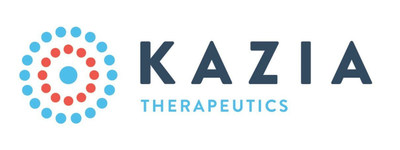KAZIA PRESENTS NEW DATA FOR PAXALISIB AND EVT801 AT AACR ANNUAL MEETING
Kazia Therapeutics Limited (NASDAQ: KZIA) announced significant data on its drug candidates paxalisib and EVT801 at the AACR Annual Meeting in Orlando from April 14-19, 2023. Five presentations will highlight new findings, particularly for paxalisib's effectiveness in melanoma and childhood brain cancer, indicating enhanced overall survival in preclinical models. Additionally, EVT801's novel biomarker strategy is expected to yield initial clinical data in 2023. The presentations reinforce Kazia's ongoing collaboration with Evotec and suggest promising therapeutic paths for both compounds, particularly in combination therapies.
- Paxalisib shows 'substantially increased overall survival' in BRAF-driven melanoma models.
- New data supports paxalisib's efficacy in combination with chemotherapy and targeted therapies for childhood brain cancer.
- Collaboration with Evotec for EVT801 demonstrates effective biomarker identification strategies.
- None.
Insights
Analyzing...
SYDNEY, April 4, 2023 /PRNewswire/ -- Kazia Therapeutics Limited (NASDAQ: KZIA; ASX: KZA), an oncology-focused drug development company, is pleased to announce the presentation of new data for both of its pipeline molecules, paxalisib and EVT801, at the upcoming Annual Meeting of the American Association for Cancer Research (AACR), held in Orlando, FL, from 14 – 19 April 2023.
In total, there will be five presentations at AACR, four of which build on previous positive data for paxalisib in melanoma and childhood brain cancer. The new data being presented provide significant support and direction for the future development of paxalisib in these expansion indications.
In addition, a presentation by scientists from Kazia's partner, Evotec, will outline the novel biomarker strategy employed in the phase I study of EVT801, and anticipates the potential initial clinical data from EVT801 in CY2023.
Key Points
- Research by Dr Gennie Parkman and colleagues, working in the laboratory of Professor Sheri Holmen at the Huntsman Cancer Institute at the University of Utah in Salt Lake City, shows paxalisib leading to 'substantially increased overall survival' in a mouse model of BRAF-driven melanoma.
- Further data from Dr Tyler Findlay and Dr Kristen Malebranche in Professor Jeffery Rubens' team at Johns Hopkins University Medical School has shown compelling evidence of synergy between paxalisib and both gemcitabine, a chemotherapy agent, and mirdametinib, a targeted therapy, in animal models of atypical teratoid / rhabdoid tumors (AT/RT), a childhood brain cancer. This data expands on positive data for paxalisib as monotherapy and in other combination regimens that was presented at AACR in 2022. The results suggest potential therapeutic approaches for use in clinical trials.
- An additional abstract by Dr Hyuk Jean Kwon and colleagues at Professor Rubens' lab describes in vitro preclinical data for the combination of paxalisib with a dual inhibitor of ACVR1 and MEK in diffuse midline gliomas, a category of childhood brain cancers which includes DIPG. The data showed strong synergy between the two agents, and points to further research in this area.
- A poster presentation by Dr Michael Paillasse and colleagues at Evotec SE describes some of the novel biomarker selection strategies employed in the ongoing phase I study of EVT801 in advanced solid cancers (NCT05114668). The poster outlines the approaches taken by the Evotec team to identify VEGFR3 expression in a range of tissues, potentially allowing for the selection of clinical trial patients who are likely to be more responsive to EVT801.
"The broad range of abstracts presented at AACR speak to the breadth of work that is ongoing across our pipeline," said Dr James Garner, Chief Executive Officer of Kazia. "The promising new data from Professors Holmen and Rubens, in melanoma and childhood brain cancer respectively, reinforces the significance of these new opportunities for paxalisib. Moreover, Kazia's ongoing collaboration with Evotec remains extremely fruitful, with excellent work from the biomarker team opening the possibility of rational patient selection in clinical trials. Of note, biomarker strategy is an important area of focus for FDA, and drug candidates with biomarker selection are potentially more likely to achieve approval than those without."
Summary of Abstracts
SESSION PO.ET03.02 – Drug Resistance in Molecular Targeted Therapies 2
April 16, 2023 – 1:30pm-5:00pm
Abstract 427/22 – Newer generation mTOR inhibition represents effective therapeutic strategy for BRAF-mutant melanoma
Gennie L Parkman, Tursun Turapov, David Kircher, William Burnett, Christopher Stehn, Kayla O'Toole, Katie Culver, Ashley Chadwick, Riley Elmer, Ryan Flaherty, Mona Foth, Karly Stanley, Robert Andtbacka, David Lum, Robert Judson-Torres, Martin McMahon, Sheri Holmen
Huntsman Cancer Institute, University of Utah, Salt Lake City, UT
University of Minnesota, Minneapolis, MN
SESSION PO.CL09.01 – Combination Therapies for Cancer
April 18, 2023 – 1:30pm-5:00pm
Abstract 5490/8 – Combination of the PI3k inhibitor paxalisib with the nucleoside analog Gemcitabine over-activates the integrated stress response and induces atypical teratoid / rhabdoid tumor cell death
Tyler Findlay, Kristen Malebranche, Anupa Geethadevi, Eric Raabe, Charles Eberhart, Jeffrey Rubens
Johns Hopkins University School of Medicine, Baltimore, MD
Abstract 5509/27 – The PI3K inhibitor paxalisib combines synergistically with the MEK inhibitor mirdametinib to target atypical teratoid / rhabdoid tumors
Kristen J. Malebranche, Tyler Findlay, Anupa Geethadevi, Charles Eberhart, Eric Raabe, Jeffrey Rubens
Johns Hopkins University School of Medicine, Baltimore, MD
SESSION PO.ET01.04 – Targeting Protein Kinases and Phosphatases for Therapy 1
April 18, 2023 – 1:30pm-5:00pm
Abstract 4990/3 – Dual inhibitor of ACVR1 and MEK 1/2 E6201 and PI3K/mTOR inhibitor paxalisib synergistically inhibit cell growth in DMG
Hyuk Jean Kwon, Abigail Tindall, Charles Eberhart, Jeffrey Rubens, Eric Raabe
Johns Hopkins University School of Medicine, Baltimore, MD
SESSION PO.CL01.06 – Diagnostic and Prognostic Biomarkers 1
April 16, 2023 – 1:30pm-5:00pm
Abstract 1015/25 – VEGFR-3 expression profiling by histology to classify patient population for the selective VEGFR-3 inhibitor EVT801
Michael Paillasse, Pierre-Benoit Ancey, Gaelle Badet, Anne Gomez-Brouchet, Janik Selves, Philippe Rochaix, Maxime Battistella, Celeste Lebbe, Philippe Cassier, Carlos Gomez-Roca, Jean-Pierre Delord, Mark Whittaker, Lise Davenne, John Friend, Michael Fitzgerald, James Garner, Pierre Fons
Evotec SE, Toulouse, France & Abingdon, UK
Institut Universitaire du Cancer Toulouse Oncopole, Toulouse, France,
Université de Paris Cité, AP-HP Hôpital Saint Louis, Paris, France,
Centre Léon Bérard, Lyon, France
Kazia Therapeutics Ltd, Sydney, Australia
About Kazia Therapeutics Limited
Kazia Therapeutics Limited (NASDAQ: KZIA; ASX: KZA) is an oncology-focused drug development company, based in Sydney, Australia.
Our lead program is paxalisib, a brain-penetrant inhibitor of the PI3K / Akt / mTOR pathway, which is being developed to treat multiple forms of brain cancer. Licensed from Genentech in late 2016, paxalisib is or has been the subject of ten clinical trials in this disease. A completed phase II study in glioblastoma reported promising signals of efficacy in 2021, and a pivotal study for registration, GBM AGILE, is ongoing, with final data expected in CY2023. Other clinical trials are ongoing in brain metastases, diffuse midline gliomas, and primary CNS lymphoma, with several of these having reported encouraging interim data.
Paxalisib was granted Orphan Drug Designation for glioblastoma by the US FDA in February 2018, and Fast Track Designation for glioblastoma by the US FDA in August 2020. In addition, paxalisib was granted Rare Pediatric Disease Designation and Orphan Designation by the US FDA for DIPG in August 2020, and for atypical teratoid / rhabdoid tumours (AT/RT) in June 2022 and July 2022, respectively.
Kazia is also developing EVT801, a small-molecule inhibitor of VEGFR3, which was licensed from Evotec SE in April 2021. Preclinical data has shown EVT801 to be active against a broad range of tumour types and has provided compelling evidence of synergy with immuno-oncology agents. A phase I study commenced recruitment in November 2021.
For more information, please visit www.kaziatherapeutics.com or follow us on Twitter @KaziaTx.
This document was authorized for release to the ASX by James Garner, Chief Executive Officer, Managing Director.
Forward-Looking Statements
This announcement may contain forward-looking statements, which can generally be identified as such by the use of words such as "may," "will," "estimate," "future," "forward," "anticipate," or other similar words. Any statement describing Kazia's future plans, strategies, intentions, expectations, objectives, goals or prospects, and other statements that are not historical facts, are also forward-looking statements, including, but not limited to, statements regarding: the timing for results and data related to Kazia's clinical and preclinical trials, and Kazia's strategy and plans with respect to its programs, including paxalisib. Such statements are based on Kazia's expectations and projections about future events and future trends affecting its business and are subject to certain risks and uncertainties that could cause actual results to differ materially from those anticipated in the forward-looking statements, including risks and uncertainties: associated with clinical and preclinical trials and product development, related to regulatory approvals, and the related to the impact of global economic conditions. These and other risks and uncertainties are described more fully in Kazia's Annual Report, filed on form 20-F with the SEC, and in subsequent filings with the SEC. Kazia undertakes no obligation to publicly update any forward-looking statement, whether as a result of new information, future events, or otherwise, except as required under applicable law. You should not place undue reliance on these forward-looking statements, which apply only as of the date of this announcement.
For More Information, Please Contact:-
Jane Lowe
IR Department
jane.lowe@irdepartment.com.au
Phone: +61 411 117 774
![]() View original content to download multimedia:https://www.prnewswire.com/news-releases/kazia-presents-new-data-for-paxalisib-and-evt801-at-aacr-annual-meeting-301788639.html
View original content to download multimedia:https://www.prnewswire.com/news-releases/kazia-presents-new-data-for-paxalisib-and-evt801-at-aacr-annual-meeting-301788639.html
SOURCE Kazia Therapeutics Limited








